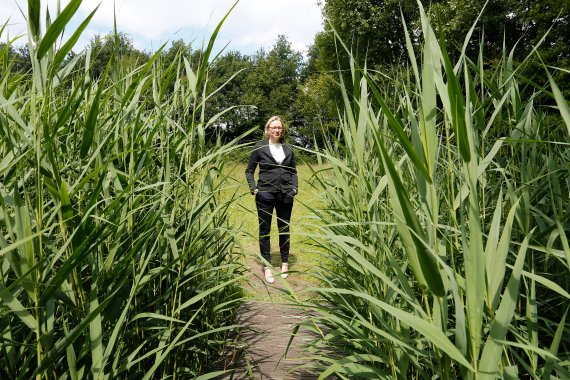In its report, IPBES claims that one million plant and animal species are threatened with extinction. How bad is that?
I think that’s bad. I see the diversity in life as something worthwhile. It hurts to know that we humans are making such a major contribution to that decline. A lot of people feel that way. On top of that, we can’t survive without that diversity.’
IPBES estimates that there are 8.1 million species. One million of them will disappear in the worst-case scenario. And we don’t even know about most of them. So what is the problem?
‘The discussion about that million is a pity because it distracts us from the real issue: the decline in the number of species and the speed with which we’re destroying habitats. It’s all going so fast that we will eventually get into serious trouble. The report gives five underlying causes, with the key one being the use of land for agriculture. A lot of land is suffering deforestation for the production of soya, palm oil and meat. That is still increasing.’
IPBES calls for ‘transformative action’. What is that?
‘The message is that incremental changes — little steps — are not enough. We need to change the system. That is not a revolution in the sense of getting rid of everything and starting all over again, but it does mean tackling the roots of the problem, the deeper causes. Nature conservation isn’t the answer; we won’t get there with bigger national parks or more protected areas. We shouldn’t be maintaining damaging policies on the one hand and spending extra money on nature management on the other. We need to press the buttons that matter.’
What does that mean at the national and international levels?
‘It is time for governments and big companies to take action. Governments need to create a more favourable climate for sustainable production and consumption. They can do that through legislation and regulations, taxes and subsidies. Companies need to keep to stricter rules and be more transparent about the extent to which they contribute to the loss of biodiversity.’
The marches and demos give me hope
What can WUR do?
‘In response to the report, quite a lot of people have said to me that Wageningen is actually partly responsible for the current state of biodiversity. Those people have a point. The dominant view in Wageningen is still that we need industrial, export-focused agriculture to feed the world. The voices proposing alternative approaches are not being heard so much.’
But aren’t we in the middle of a transition to more sustainable, circular agriculture?
‘I’m not so optimistic about that. Circular agriculture is a step in the right direction but it’s not necessarily good for biodiversity as well. The development of knowledge about nature-inclusive agriculture could use some extra support. We have the technical solutions but there is too little knowledge about how we can implement them and scale them up, and how we can bring about that transformation. Wageningen may be changing, but the rest of the world has not yet seen much sign of this. That’s what I hear from the general public, other universities and ministries. Extra effort is needed to make that visible. That also requires explicitly dealing with and being open about the past. One of the comments I get is that Wageningen should really start by saying “sorry”. I can understand that.’
What can you and I do to stop the decline in the number of species?
‘I find that a difficult question. Consumer behaviour is important but I don’t think that’s the crucial thing at the moment. You shouldn’t make the general public, as individuals, bear responsibility for the conservation of biodiversity. That detracts attention from the role of big companies and governments.’
Surely I can choose the sustainable option in shops?
‘Only people with enough money can do that. It’s an elitist issue. I find the whole idea of freedom of choice quite weird — letting consumers choose from five chicken labels that differ in the quality of life. Lots of people would be fine with restrictions on that freedom of choice.’
So only sustainable products on the shelves?
‘Yes. The real task for the general public where biodiversity is concerned is not as consumers but as political actors. I have found social phenomena such as the climate marches and Extinction Rebellion quite inspiring. That is what ordinary people can do: show they mean it, that problems with pollution, climate change and the extinction of species are too serious to be left to individual consumers. The marches and demos give me hope. That is the way forwards. We have one big problem and that is that we aren’t treating the planet — our home — sustainably. It is clear that if we continue like this, life will become a lot less pleasant.’
| IPBES: ‘Unprecedented decline in nature’ |
|---|
| Biodiversity is declining faster than ever before in human history. That is the conclusion of the first Global Assessment by the Intergovernmental Science-Policy Platform on Biodiversity and Ecosystem Services (IPBES), which was presented in Paris in early May. About 150 experts were involved in the study. Esther Turnhout, professor of the Politics of Environmental Knowledge, was one of the authors of the chapter on policy options that could lead to a better future. |

 Photo: Aldo Allessie
Photo: Aldo Allessie